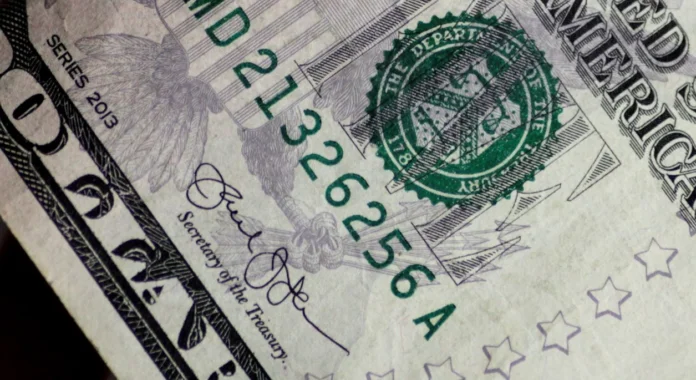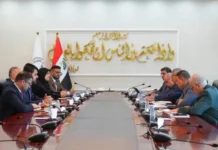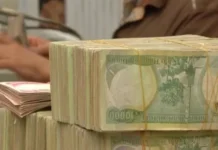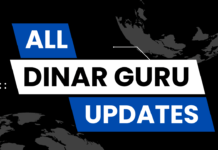The National Bank of Iraq (CBI) sold more than $274 million on Sunday; settlements primarily balance cash sales.
The Bank sold $274,868,286 today according to a CBI estimate. Documentary credits, international electronic card settlements, foreign transfers under a base exchange rate of 1,310 dinars per dollar covered; cash transactions covered at a cost of 1,305 dinars per dollar.
Most of the agreements ($267,368,286) were directed towards managing unknown equilibriums as movements and credit swaps, the study notes. Cash offers acquired the remaining $7,500,000.
Two banks handled cash transactions; seventeen banks responded to questions on outside balances. There were just five exchange and brokerage companies during the auction.
197 enterprises were barred from participating in foreign exchange auctions in May by Iraq’s central bank. This was regarded as an effort to restrict money laundering and funding for terrorists.
Baghdad has some restrictions on its internal use since American currencies control over their economy.
According to week’s vice governor of the Central Bank, earlier this month Iraq significantly increased foreign currency transactions via the official global SWIFT system.
In keeping with the developments to assure compliance with international sanctions and fight money laundering, the banking sector of the country will also apply the international financial messaging system SWIFT by the end of 2022.
Rich in oil, Iraq has no problem of money; rather, it boasts odd holdings of more than $100 billion. Experts claim, however, that demand for foreign currency has been driven up by tax evasion, the black market, dollar smuggling to countries and enterprises under sanctions from the United States, especially Iran.
Daily transaction volume in first of 2023 came at $50 million. Official estimates indicate that Iraq now has roughly $200 million, which fits the scope of its economy.
Electronic systems should be used by Iraqi banks who have to meet dollar targets maintained in the US. The US Federal Reserve will then go over the requests, barring them should it find them suspicious.
Still, the black market is really vivid.
The government sets the currency rate officially at 1,320 dinars for every dollar. Trading in unofficial commercial sectors at 1,470 for every dollar, the dinar has been performing.
Iran keeps good trading ties to Iraq. It also has enormous political impact in Baghdad, as followers in Iraq supervise parliament and support the current government.
Last year, Prime Minister Mohamed Shia al-Sudani acknowledged that Iraqi traders had turned to the underground market as sanctions forbidding dollar transactions to Iranian institutions had forced them.
Plans developed by the government at the end of November aimed at inspiring those who import items such phones, gold, cars, cigarettes, and vehicles to use legal means of income.
Iraqi officials have banned the activity of dollar transactions by more than twenty Iraqi banks in compliance with US sanctions and money laundering policies.
Although they are free to operate local exchanges, the banned banks have little dollar management capability.




